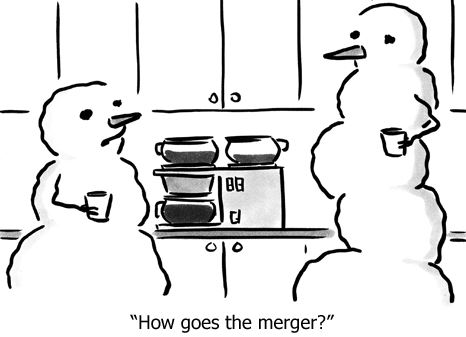Accounting Issues can give rise to complications when dealing with mergers and acquisitions.
After the deal closes, the merged companies will prepare combined financial statements and federal and state tax returns. Consolidation of the financial reporting function requires management to choose between different accounting systems, methods, policies and personnel as soon as feasible.
If the companies use different methods of accounting for tax or book purposes, you’ll need to amend previous tax filings or restate financial performance if the combined entity issues comparative financial statements. Failure to synchronize enterprise resource planning software could slow down the collection of financial data — or even result in missing or inaccurate data.
After the deal closes, the buyer will also be required to allocate the purchase price to the company’s assets and liabilities. Some indefinite-lived intangibles may require impairment testing in subsequent periods, if the asset’s fair value falls below its book value. Inaccurate intangible asset valuation and hasty purchase price allocations may lead to unnecessary write-offs in the future.
Important Note: In 2014, the Financial Accounting Standards Board (FASB) relaxed the reporting requirements for private business combinations under U.S. Generally Accepted Accounting Principles (GAAP). Now private companies can elect to amortize goodwill and certain intangible assets acquired in business combinations for 10 or fewer years instead of testing them only for impairment. They can also elect to combine non-competition agreements and certain customer-related intangibles with goodwill. FASB is still considering whether to extend these simplified options to public companies.
Accounting issues are not the only challenge faced when dealing with mergers and acquisitions. There are also Integration and Tax Issues to consider.



